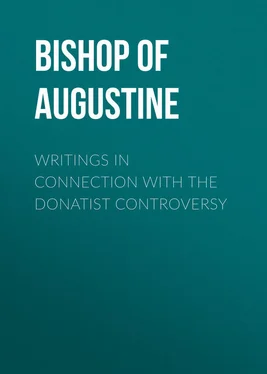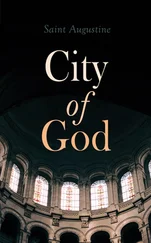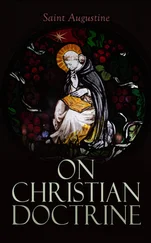Saint Augustine - Writings in Connection with the Donatist Controversy
Здесь есть возможность читать онлайн «Saint Augustine - Writings in Connection with the Donatist Controversy» — ознакомительный отрывок электронной книги совершенно бесплатно, а после прочтения отрывка купить полную версию. В некоторых случаях можно слушать аудио, скачать через торрент в формате fb2 и присутствует краткое содержание. Жанр: foreign_antique, foreign_prose, на английском языке. Описание произведения, (предисловие) а так же отзывы посетителей доступны на портале библиотеки ЛибКат.
- Название:Writings in Connection with the Donatist Controversy
- Автор:
- Жанр:
- Год:неизвестен
- ISBN:нет данных
- Рейтинг книги:3 / 5. Голосов: 1
-
Избранное:Добавить в избранное
- Отзывы:
-
Ваша оценка:
- 60
- 1
- 2
- 3
- 4
- 5
Writings in Connection with the Donatist Controversy: краткое содержание, описание и аннотация
Предлагаем к чтению аннотацию, описание, краткое содержание или предисловие (зависит от того, что написал сам автор книги «Writings in Connection with the Donatist Controversy»). Если вы не нашли необходимую информацию о книге — напишите в комментариях, мы постараемся отыскать её.
Writings in Connection with the Donatist Controversy — читать онлайн ознакомительный отрывок
Ниже представлен текст книги, разбитый по страницам. Система сохранения места последней прочитанной страницы, позволяет с удобством читать онлайн бесплатно книгу «Writings in Connection with the Donatist Controversy», без необходимости каждый раз заново искать на чём Вы остановились. Поставьте закладку, и сможете в любой момент перейти на страницу, на которой закончили чтение.
Интервал:
Закладка:
Chap. xvii. – 24. "Can the power of baptism," says Cyprian, "be greater or better than confession? than martyrdom? that a man should confess Christ before men, and be baptized in his own blood? And yet," he goes on to say, "neither does this baptism profit the heretic, even though for confessing Christ he be put to death outside the Church." 279 279 Cypr. Ep. lxxxiii. sec. 18.
This is most true; for, by being put to death outside the Church, he is proved not to have had charity, of which the apostle says, "Though I give my body to be burned, and have not charity, it profiteth me nothing." 280 280 1 Cor. xiii. 3.
But if martyrdom is of no avail for this reason, because it has not charity, neither does it profit those who, as Paul says, and Cyprian further sets forth, are living within the Church without charity in envy and malice; and yet they can both receive and transmit true baptism. "Salvation," he says, "is not without the Church."[281] Who says that it is? And therefore, whatever men have that belongs to the Church, it profits them nothing towards salvation outside the Church. But it is one thing not to have, another to have so as to be of no use. He who has not must be baptized that he may have; but he who has to no avail must be corrected, that what he has may profit him. Nor is the water in the baptism of heretics "adulterous,"[281] because neither is the creature itself which God made evil, nor is fault to be found with the words of the gospel in the mouths of any who are astray; but the fault is theirs in whom there is an adulterous spirit, even though it may receive the adornment of the sacrament from a lawful spouse. Baptism therefore can "be common to us and the heretics," 281 281 Cypr. l. c.
just as the gospel can be common to us, whatever difference there may be between our faith and their error, – whether they think otherwise than the truth about the Father, or the Son, or the Holy Spirit; or, being cut away from unity, do not gather with Christ, but scatter abroad, 282 282 Matt. xii. 30.
– seeing that the sacrament of baptism can be common to us, if we are the wheat of the Lord, with the covetous within the Church, and with robbers, and drunkards, and other pestilent persons of the same sort, of whom it is said, "They shall not inherit the kingdom of God," 283 283 1 Cor. vi. 10.
and yet the vices by which they are separated from the kingdom of God are not shared by us.
Chap. xviii. – 25. Nor, indeed, is it of heresies alone that the apostle says "that they which do such things shall not inherit the kingdom of God." But it may be worth while to look for a moment at the things which he groups together. "The works of the flesh," he says, "are manifest, which are these; adultery, fornication, uncleanness, lasciviousness, idolatry, witchcraft, hatred, variance, emulations, wrath, strife, seditions, heresies, envyings, murders, drunkenness, revellings, and such like: of the which I tell you before, as I have also told you in time past, that they which do such things shall not inherit the kingdom of God." 284 284 Gal. v. 19-21.
Let us suppose some one, therefore, chaste, continent, free from covetousness, no idolater, hospitable, charitable to the needy, no man's enemy, not contentious, patient, quiet, jealous of none, envying none, sober, frugal, but a heretic; it is of course clear to all that for this one fault only, that he is a heretic, he will fail to inherit the kingdom of God. Let us suppose another, a fornicator, unclean, lascivious, covetous, or even more openly given to idolatry, a student of witchcraft, a lover of strife and contention, envious, hot-tempered, seditious, jealous, drunken, and a reveller, but a Catholic; can it be that for this sole merit, that he is a Catholic, he will inherit the kingdom of God, though his deeds are of the kind of which the apostle thus concludes: "Of the which I tell you before, as I have also told you in time past, that they which do such things shall not inherit the kingdom of God?" If we say this, we lead ourselves astray. For the word of God does not lead us astray, which is neither silent, nor lenient, nor deceptive through any flattery. Indeed, it speaks to the same effect elsewhere: "For this ye know, that no whoremonger, nor unclean person, nor covetous man, which is an idolater, hath any inheritance in the kingdom of Christ and of God. Let no man deceive you with vain words." 285 285 Eph. v. 5, 6.
We have no reason, therefore, to complain of the word of God. It certainly says, and says openly and freely, that those who live a wicked life have no part in the kingdom of God.
Chap. xix. – 26. Let us therefore not flatter the Catholic who is hemmed in with all these vices, nor venture, merely because he is a Catholic Christian, to promise him the impunity which holy Scripture does not promise him; nor, if he has any one of the faults above mentioned, ought we to promise him a partnership in that heavenly land. For, in writing to the Corinthians, the apostle enumerates the several sins, under each of which it is implicitly understood that it shall not inherit the kingdom of God: "Be not deceived," he says: "neither fornicators, nor idolaters, nor adulterers, nor effeminate, nor abusers of themselves with mankind, nor thieves, nor covetous, nor drunkards, nor revilers, nor extortioners, shall inherit the kingdom of God." 286 286 1 Cor. vi. 9, 10.
He does not say, those who possess all these vices together shall not inherit the kingdom of God; but neither these nor those: so that, as each is named, you may understand that no one of them shall inherit the kingdom of God. As, therefore, heretics shall not possess the kingdom of God, so the covetous shall not inherit the kingdom of God. Nor can we indeed doubt that the punishments themselves, with which they shall be tortured who do not inherit the kingdom of God, will vary in proportion to the difference of their offences, and that some will be more severe than others; so that in the eternal fire itself there will be different tortures in the punishments, corresponding to the different weights of guilt. For indeed it was not idly that the Lord said, "It shall be more tolerable for the land of Sodom in the day of judgment than for thee." 287 287 Matt. xi. 24.
But yet, so far as failing to inherit the kingdom of God is concerned, it is just as certain, if you choose any one of the less heinous of these vices, as if you chose more than one, or some one which you saw was more atrocious; and because those will inherit the kingdom of God whom the Judge shall set on His right hand, and for those who shall not be found worthy to be set at the right hand nothing will remain but to be at the left, no other announcement is left for them to hear like goats from the mouth of the Shepherd, except, "Depart into everlasting fire, prepared for the devil and his angels;" 288 288 Matt. xxv. 41.
though in that fire, as I said before, it may be that different punishments will be awarded corresponding to the difference of the sins.
Chap. xx. – 27. But on the question whether we ought to prefer a Catholic of the most abandoned character to a heretic in whose life, except that he is a heretic, men can find nothing to blame, I do not venture to give a hasty judgment. But if any one says, because he is a heretic, he cannot be this only without other vices also following, – for he is carnal and natural, and therefore must be also envious, and hot-tempered, and jealous, and hostile to truth itself, and utterly estranged from it, – let him fairly understand, that of those other faults of which he is supposed to have chosen some one less flagrant, a single one cannot exist by itself in any man, because he in turn is carnal and natural; as, to take the case of drunkenness, which people have now become accustomed to talk of not only without horror, but with some degree of merriment, can it possibly exist alone in any one in whom it is found? For what drunkard is not also contentious, and hot-tempered, and jealous, and at variance with all soundness of counsel, and at grievous enmity with those who rebuke him? Further, it is not easy for him to avoid being a fornicator and adulterer, though he may be no heretic; just as a heretic may be no drunkard, nor adulterer, nor fornicator, nor lascivious, nor a lover of money, or given to witchcraft, and cannot well be all these together. Nor indeed is any one vice followed by all the rest. Supposing, therefore, two men, – one a Catholic with all these vices, the other a heretic free from all from which a heretic can be free, – although they do not both contend against the faith, and yet each lives contrary to the faith, and each is deceived by a vain hope, and each is far removed from charity of spirit, and therefore each is severed from connection with the body of the one dove; why do we recognise in one of them the sacrament of Christ, and not in the other, as though it belonged to this or that man, whilst really it is the same in both, and belongs to God alone, and is good even in the worst of men? And if of the men who have it, one is worse than another, it does not follow that the sacrament which they have is worse in the one than in the other, seeing that neither in the case of two bad Catholics, if one be worse than the other, does he possess a worse baptism, nor, if one of them be good and another bad, is baptism bad in the bad one and good in the good one; but it is good in both. Just as the light of the sun, or even of a lamp, is certainly not less brilliant when displayed to bad eyes than when seen by better ones; but it is the same in the case of both, although it either cheers or hurts them differently according to the difference of their powers.
Читать дальшеИнтервал:
Закладка:
Похожие книги на «Writings in Connection with the Donatist Controversy»
Представляем Вашему вниманию похожие книги на «Writings in Connection with the Donatist Controversy» списком для выбора. Мы отобрали схожую по названию и смыслу литературу в надежде предоставить читателям больше вариантов отыскать новые, интересные, ещё непрочитанные произведения.
Обсуждение, отзывы о книге «Writings in Connection with the Donatist Controversy» и просто собственные мнения читателей. Оставьте ваши комментарии, напишите, что Вы думаете о произведении, его смысле или главных героях. Укажите что конкретно понравилось, а что нет, и почему Вы так считаете.












